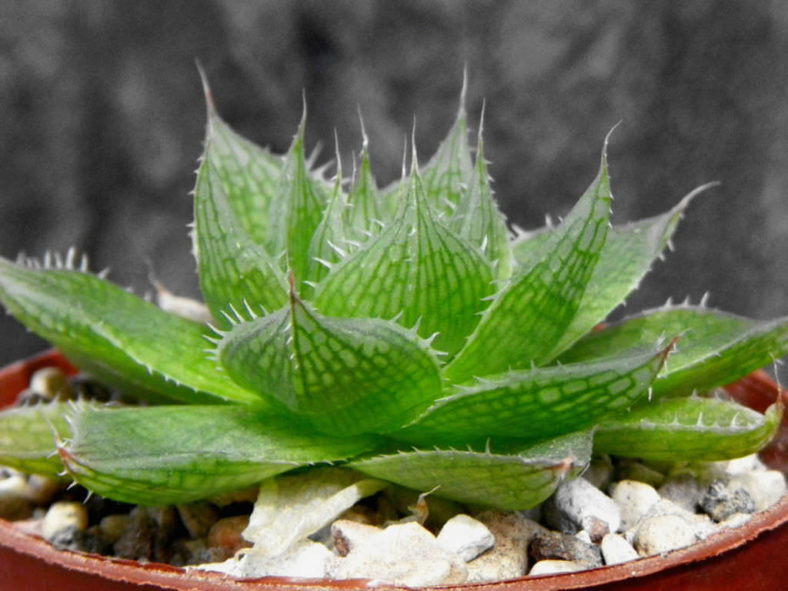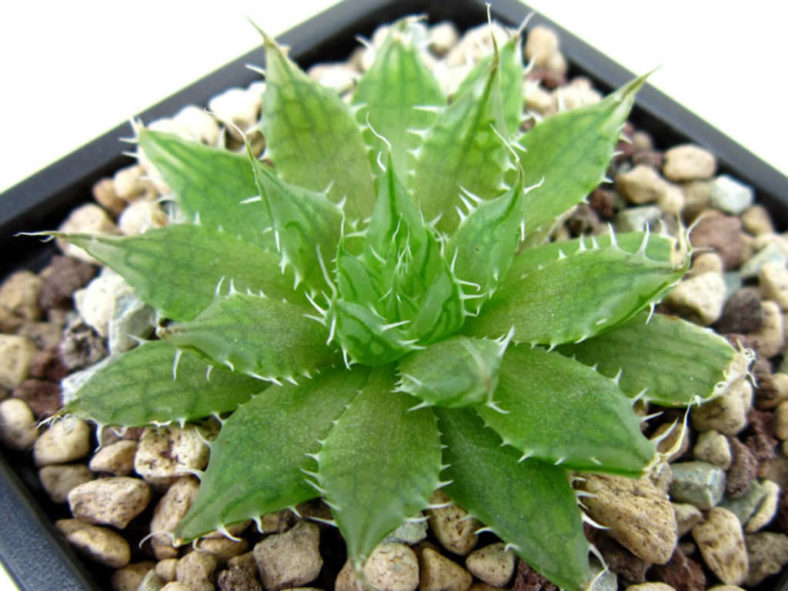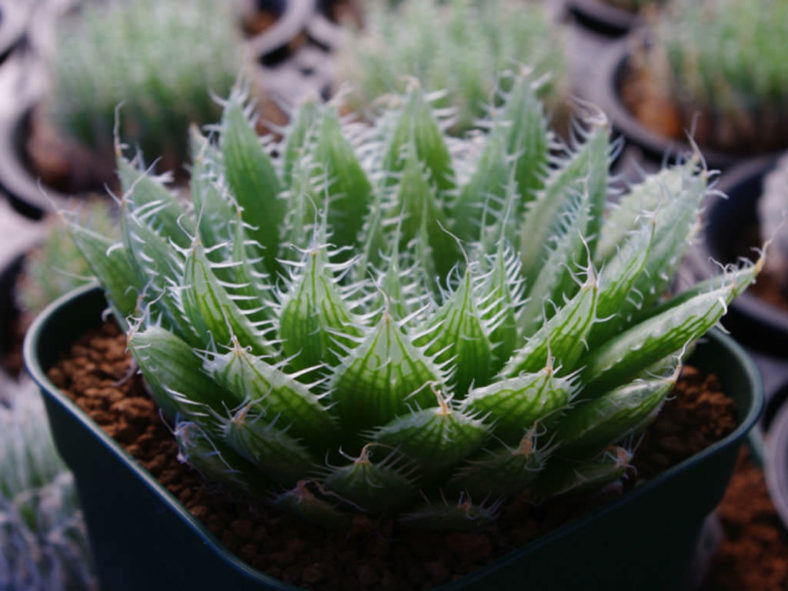Scientific Name
Haworthia decipiens Poelln.
Synonym(s)
Haworthia decipiens var. decipiens
Scientific Classification
Family: Asphodelaceae
Subfamily: Asphodeloideae
Tribe: Aloeae
Genus: Haworthia
Origin
Haworthia decipiens is native to South Africa. It occurs from near Prince Albert along the north of the Swartberg Mountains to Uniondale and Willowmore in the Eastern Cape, usually growing in the shelter of protective shading bushes.
Description
Haworthia decipiens is a small succulent that forms stemless rosettes of fleshy, relatively thin, glaucous green leaves with many deep green reticulated lines and slender, sparse marginal teeth. The slowly proliferous rosettes grow up to 4.8 inches (12 cm) in diameter, but there are forms with smaller rosettes, only 1.2 to 1.6 inches (3 to 4 cm). The leaves are more or less spreading, broadly ovate, broad towards the base, and terminating in a simple about 0.4 inches (1 cm) long pellucid bristle. They dry and contract during drought.
The flowers mainly occur in spring. They are white with greenish-brown veins and appear densely arranged on simple, slender stalks that can reach up to 12 inches (30 cm) in length.
This species is frequently confused with its relative Haworthia arachnoidea. Both are variable and hard to identify. Haworthia decipiens differs from Haworthia arachnoidea by the shorter and broader leaves, the lighter color, the smooth keels, and the slender, sparse teeth, mainly only on the margins.

Hardiness
USDA hardiness zones 10a to 11b: from 30 °F (−1.1 °C) to 50 °F (+10 °C).
How to Grow and Care
These succulents are not considered difficult houseplants to grow. If you can keep a pot of Aloe alive on a windowsill, chances are you can do the same with a dish of Haworthia. As with all succulents, the most dangerous situation is too much water. They should never be allowed to sit in water under any circumstances. At the same time, these decorative little plants can be grown in interesting containers such as teacups and even miniature baby shoes. If you are given a Haworthia in such a container, ensure the container has adequate drainage.
Haworthias are small, usually between 3 and 5 inches (7.5 cm and 12.5 cm) in height, and relatively slow-growing. They are often grown in small clusters in wide, shallow dishes. Over time, clusters will naturally enlarge as the mother plant sends off small plantlets. When the cluster has outgrown its dish, repot into a new wide and shallow dish with fresh potting soil in the spring or early summer. This is also the time to take offsets for propagation.
Learn more at How to Grow and Care for Haworthia.
Varieties
- Haworthia decipiens var. minor
- Haworthia decipiens var. pringlei
- Haworthia decipiens var. xiphiophylla
Links
- Back to genus Haworthia
- Succupedia: Browse succulents by Scientific Name, Common Name, Genus, Family, USDA Hardiness Zone, Origin, or cacti by Genus
Photo Gallery
Click on a photo to see a larger version.



